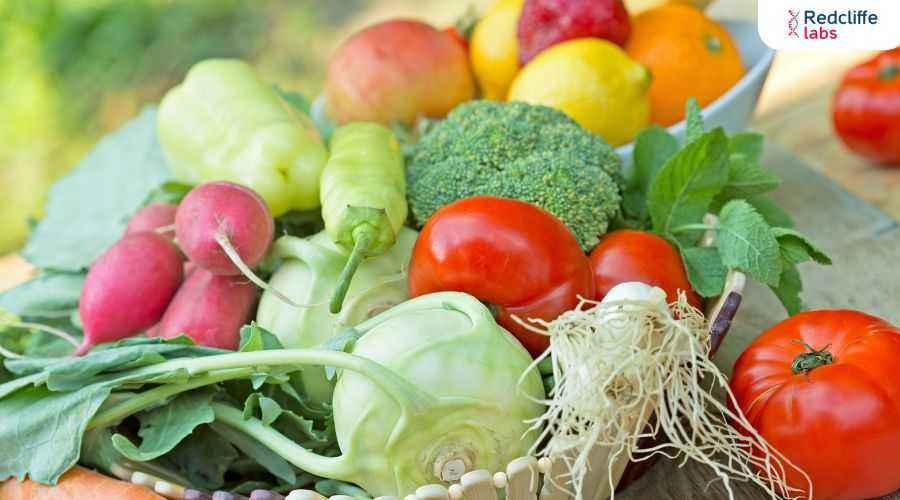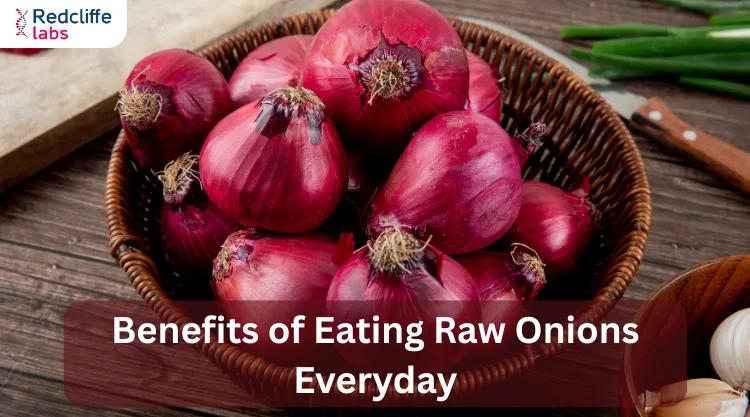Organic Food: Should You Prefer It?

Medically Reviewed By
Dr. Geetanjali Gupta
Written By Muskan Taneja
on Sep 4, 2024
Last Edit Made By Muskan Taneja
on Jul 19, 2025

The Indian market is growing, and people are moving towards organic food. A report from Market Research Future reveals that India will have a market of $2.07 billion in 2024. Two major reasons are global awareness and health-conscious consumers. The organic food market is experiencing rapid growth, with a Compound Annual Growth Rate (CAGR) of 25%.
The demand for organic beverages, organic cereals and food grains, organic spices, and organic fruits and vegetables is growing in the Indian organic food market. These foods are good for health but are very costly. Not every Indian can afford them. But what’s the benefit of buying organic foods? Why should anyone buy organic food? Is every organic food good for health? Let’s begin and find the answer to all these questions.
What Is Organic Food?
Organic food is environmentally friendly and grown using government-controlled farming methods. These are healthy but expensive. What makes them expensive? Organic farming does not use synthetic chemicals, artificial flavors, colors, or preservatives.
Organic farming came as an alternative to farming. Organic food processing has two distinct paths: small-scale farms and large-scale organic food.
The United States Department of Agriculture (USDA) regulates organic food production through its National Organic Program (NOP). The government observes and labels food as 100% organic, made with organic ingredients, all-natural, or farm-raised.
Also, read: https://redcliffelabs.com/myhealth/food-and-nutrition/10-foods-that-improve-your-cardiac-health/
List of Organic Food To Buy
The Environmental Working Group gave a list of 15 clean organic foods for 2024. These clean 15 have the lowest pesticide levels. These are:
- Asparagus
- Frozen sweet peas
- Honeydew melon (kharbooja)
- Kiwi
- Pineapple
- Sweet corn
- Watermelon
- Avocados
- Cabbage
- Onion
- Papaya
- Carrots
- Sweet potatoes
- Mangoes
- Mushrooms
List of Organic Food Not To Buy
The Environment Working Group has provided a list of 12 dirty dozen organic foods not to buy. These are:
- Spinach
- Strawberries
- Collard, kale, and mustard greens
- Pears
- Peaches
- Apples
- Bell peppers
- Blueberries
- Green beans
- Cherries
- Nectarines
- Grapes
Advantages and Disadvantages of Organic Food
One popular advantage of organic food is that it is healthy. Meanwhile, a disadvantage of organic food is that it's expensive. You must be aware of this. However, this is not it. There are several other advantages and disadvantages of organic food. These advantages and disadvantages also give an idea of why you should buy organic food and why not buy organic food. Let’s understand.
Why You Should Buy Organic Food?
- Organic food produces good quality.
- It has antioxidant properties that help to reduce inflammation.
- The nutritional content is high.
- Promote less usage of chemical fertilizers and pesticides.
- The disruption to wildlife is less.
- Less water and soil pollution.
- Aids in reducing fossil fuel consumption and wildlife disruption.
- It improves the quality of life for livestock.
- The quality reduces pest resistance.
- Boost the quality of food.
Why You Should Not Buy Organic Food?
- Organic food is expensive because of the need for more preservatives and chemicals.
- There is a limitation on the shelf life.
- Only some foods are organic, making limited product choices.
- The availability of organic food is rare.
- The scalability could be better.
- It is difficult to scale organic farming.
- Farmers use a rigorous farming method.
Organic Foods or Inorganic Foods: What’s the Difference Between The Two?
Organic foods are pesticide- and chemical-free, while inorganic foods contain chemicals, pesticides, and growth hormones. However, this is a major difference between the two. Here is a table interpretation showing the difference between organic and inorganic foods.
|
Factors |
Organic |
Inorganic |
|
Growing source |
Grown naturally |
Grown by using fertilizers, pesticides, and chemicals. |
|
Time taken for growth |
It is grown at its own pace with no additional factors. |
Uses artificial fertilizers and growth hormones for fast cultivation. |
|
Pesticides usage |
No usage |
Majorly used |
|
Fertilizers |
Manure and compost (some natural sources) |
Chemical fertilizers such as nitrates. |
|
Health factors |
Natural antioxidants and few pesticides |
Consider not many health benefits |
|
Shelf life |
Maximum five days. |
For a long time because of pesticides. |
|
Cost |
Expensive (10-20%) |
Budget-friendly |
|
Nutrient composition |
More nutritious |
Less nutrient proportion |
|
Consumption demand |
Less demand because it's costly. |
High demand because it's less expensive and grows quickly. |
Key Takeaways
Organic food is good for the environment and body. However, it is hard on the wallet. Studies suggest that organic food may lower cancer risk and other life-threatening diseases. Doctors claim organic food is beneficial for the environment and conventional agriculture. They believe that organic food has a significant impact on human health and will reduce the production of industrial foods. Overall, organic food is healthy and ensures your well-being.



